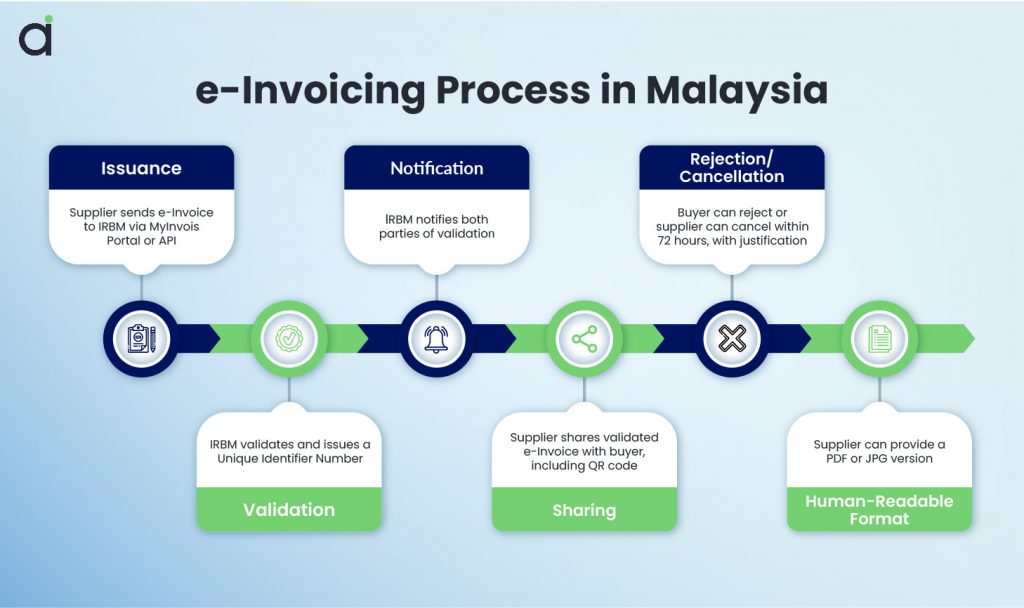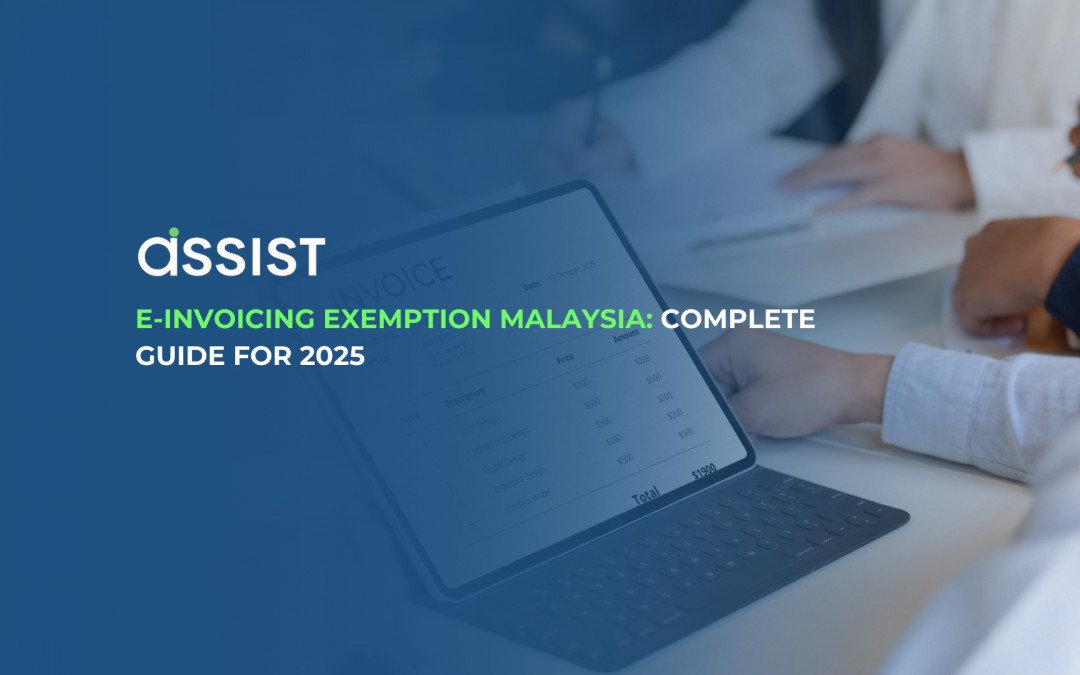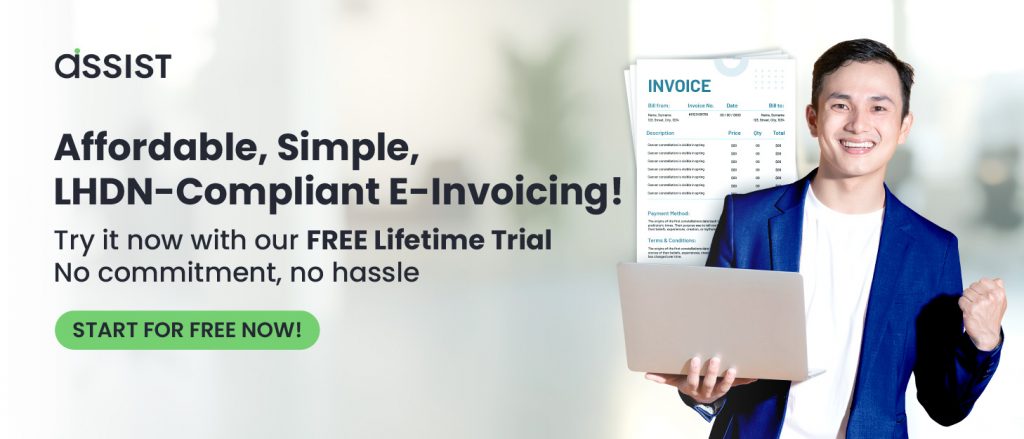As Malaysia accelerates its digital tax initiatives, electronic invoicing (e-Invoicing) is set to transform how businesses issue and manage invoices. While e-Invoicing compliance is mandatory for many, specific exemptions apply to certain entities and transactions. This guide provides updated insights into e-Invoicing exemptions, their impact, and practical steps businesses can take to navigate this evolving landscape.
What is e-Invoicing and Why is it Important?
e-Invoicing is the process of issuing, receiving, and storing invoices in a standardized digital format. The Inland Revenue Board of Malaysia (IRBM) has introduced this system to improve efficiency, reduce tax evasion, and enhance financial transparency. Despite these benefits, the government acknowledges that not all entities and transactions fit into a one-size-fits-all approach, leading to well-defined exemptions.

Who is Exempt from e-Invoicing in Malaysia?
1. Specific Entities and Individuals
According to the Income Tax (Issuance of Electronic Invoice) Rules 2024, the following groups are exempt:
Rulers and Ruling Chiefs: This includes former rulers and ruling chiefs, excluding former Governors or Yang di-Pertua Negara.
Consorts of Rulers or Former Rulers: Individuals with titles such as Raja Perempuan, Sultanah, and Permaisuri.
Government and Related Bodies: Federal and state governments, statutory authorities, and local councils are exempt.
Consular and Diplomatic Personnel: Diplomats and consular employees are not required to issue e-Invoices.
2. Types of Income Exempt from e-Invoicing
Certain types of income do not require e-Invoicing, such as:
Salaries and Wages
Alimony Payments
Pensions
Scholarships
Zakat Contributions
These exemptions prevent redundant reporting and recognize income already subject to other forms of documentation.
3. Small Business Exemption Based on Revenue
Businesses with an annual turnover below RM150,000 are currently exempt. However, this exemption does not apply if the business has related entities with turnovers exceeding RM150,000. This measure helps micro-enterprises avoid compliance burdens while ensuring larger organizations adhere to e-Invoicing regulations.
Real-World Examples of e-Invoicing Exemptions
To provide a clearer picture, here are some practical scenarios:
Example 1: Small Retail Shop
A local grocery store with an annual turnover of RM120,000 falls below the threshold and is exempt from issuing e-Invoices. However, if the store is part of a franchise with combined earnings exceeding RM150,000, it must comply with e-Invoicing regulations.
Example 2: University Scholarships
A private university provides scholarships to students. Since scholarships fall under exempt income, the institution is not required to issue e-Invoices for these transactions.
Benefits and Challenges of e-Invoicing Exemptions
Benefits
✔ Reduced Compliance Burden – Exempt entities do not need to implement new digital invoicing systems, saving time and resources.
✔ Cost Savings – Small businesses avoid the expenses associated with integrating e-Invoicing technology.
✔ Operational Continuity – Government and diplomatic entities can maintain their existing financial workflows without disruption.
Challenges
❌ Inconsistent Documentation – Exemptions may lead to disparities in how transactions are recorded.
❌ Regulatory Complexity – Businesses need to ensure they meet exemption criteria, which may require legal and accounting expertise.
❌ Limited Digital Benefits – Entities that do not transition to e-Invoicing miss out on automation and streamlined record-keeping.
How Businesses Can Prepare
- Assess Eligibility – Determine whether your business qualifies for exemptions based on turnover and entity type.
- Consult Tax Experts – Seek professional advice to ensure compliance and avoid potential penalties.
- Stay Updated – Regularly check IRBM announcements for changes in exemption criteria.
- Consider Voluntary Adoption – Even if exempt, businesses may benefit from early e-Invoicing adoption to future-proof their operations.
Conclusion
Malaysia’s e-Invoicing exemptions reflect the government’s effort to balance digital transformation with practical business considerations. While many businesses must comply, exemptions provide flexibility for specific groups. Understanding these exemptions ensures businesses remain compliant while making informed financial decisions.
Effortless Invoicing Starts with Assist E-Invoice Software!
Struggling with manual invoicing, tax compliance, or late payments? Assist E-Invoice Software makes it easy—automated, accurate, and budget-friendly!
Why Assist?
✅ Affordable – Powerful features without the hefty price tag.
✅ Smart Automation – No more manual errors or wasted time.
✅ Seamless Tax Compliance – Stay MyInvois-ready with ease.
✅ Faster Payments – Get paid on time, every time.
Say goodbye to invoicing stress—switch to a smarter solution today!
Frequently Asked Questions (FAQ)
What is the purpose of e-Invoicing exemptions in Malaysia?
E-Invoicing exemptions are designed to reduce compliance burdens for specific entities, such as government bodies, diplomatic personnel, and small businesses, while ensuring a smooth transition to digital invoicing.
How can I check if my business qualifies for an exemption?
Businesses can review the official guidelines from the Inland Revenue Board of Malaysia (IRBM) or consult a tax professional to determine eligibility.
If my business is exempt, can I still use e-Invoicing voluntarily?
Yes. Even if exempt, businesses may opt to use e-Invoicing to streamline financial processes and future-proof their operations.
Do e-Invoicing exemptions apply permanently?
Exemptions are subject to change based on government policies. It’s essential to stay updated with the latest regulations from the IRBM.
Will exemptions impact tax filing and reporting?
No, businesses and entities that qualify for exemptions must still adhere to other tax reporting requirements, even if they are not mandated to use e-Invoicing.


Recent Comments